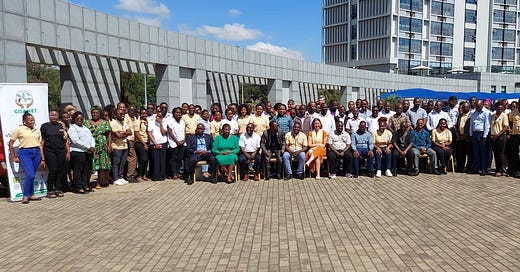Community Input Crucial for Transforming Malawi's Food Systems
The Transformative Initiative, funded by GIZ, aims to build capacities and coordination among food systems decision-makers across Mzimba, Dedza and Chikwawa districts through 2026.
LILONGWE, Malawi— Civil society groups advocating for food and nutrition security in Malawi are emphasizing the need to involve local communities in initiatives aimed at overhauling the country's food systems, writes Martin Kamlaike.
During a learning event Friday in the capital, Lilongwe, organizations like the Civil Society Organization Nutrition Alliance stressed that capturing community voices is vital for understanding grassroots needs and crafting effective solutions.
"We are really asking for people to give opinion on where the needs are, where the challenges lay, where the solutions are," said Bernice Mueller, team lead for the Transformative Initiative on Food Systems project backed by GIZ, the German development agency.
The event, themed "Malawi FAST Forward – Food and Agriculture Systems Transformation for Malawi's healthy and prosperous future," brought together CSONA, the MwAPATA Institute and Civil Society Agriculture Network.
Mueller said engaging farmers and rural communities directly, including through "visioning" exercises where they map out their ideal food systems, is crucial for informing project interventions.
"We already did go to the community to really ask for designing their own food systems," she told attendees.
Geoffrey Mamba, secretary for irrigation in the agriculture ministry, called the gathering an important platform for identifying pain points in Malawi's food systems as the government spearheads reforms.
He urged Malawians to diversify from an over-reliance on maize as the nation rethinks food and nutrition policies.
The Transformative Initiative, funded by GIZ, aims to build capacities and coordination among food systems decision-makers across Mzimba, Dedza and Chikwawa districts through 2026.
Civil society leaders say bottom-up, community-driven approaches will be key as Malawi reimagines policies and interventions to tackle food insecurity, malnutrition and the impacts of climate change on agricultural livelihoods.



